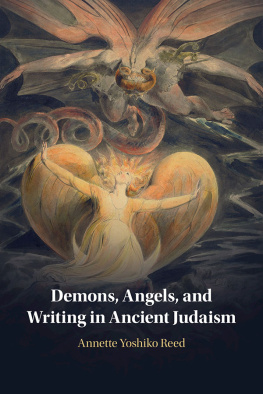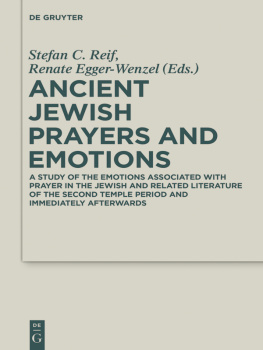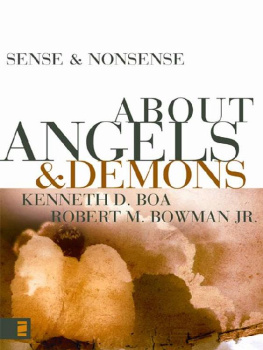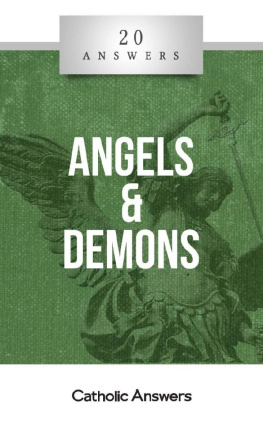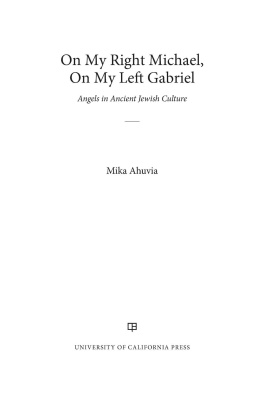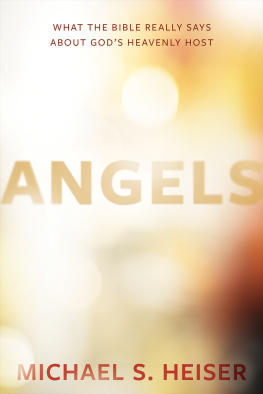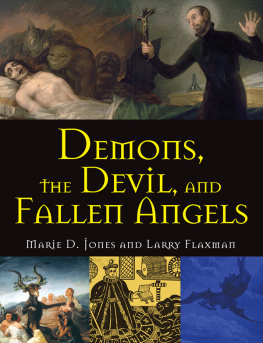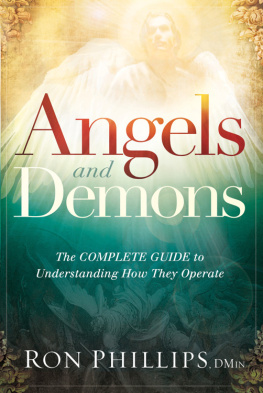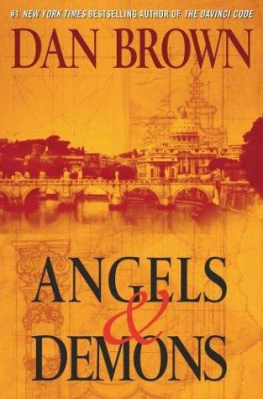What did ancient Jews believe about demons and angels? This question has long been puzzling, not least because the Hebrew Bible says relatively little about such transmundane powers. In the centuries after the conquests of Alexander the Great, however, we find an explosion of explicit and systematic interest in, and detailed discussions of, demons and angels. In this book, Annette Reed considers the third century BCE as a critical moment for the beginnings of Jewish angelology and demonology. Drawing on early pseudepigrapha and Aramaic Dead Sea Scrolls, she reconstructs the scribal settings in which transmundane powers became a topic of concerted Jewish interest. Reed also situates this development in relation to shifting ideas about scribes and writing across the Hellenistic Near East. Her book opens a window onto a forgotten era of Jewish literary creativity that nevertheless deeply shaped the discussion of angels and demons in Judaism and Christianity.
Annette Yoshiko Reed is currently an associate professor in the Department of Religious Studies and Skirball Department of Hebrew and Judaic Studies at New York University. A scholar of Judaism and Christianity, she focuses on questions of identity and literary practice across Second Temple Judaism and Late Antiquity. Her research looks to noncanonical and other neglected sources to open new perspectives on ancient Jews and Christians. Her books include Fallen Angels and the History of Judaism and Christianity (Cambridge University Press, 2005) and Jewish-Christianity and the History of Judaism (2018), as well as a number of edited volumes.
University Printing House, Cambridge CB 2 8 BS , United Kingdom
One Liberty Plaza, 20th Floor, New York, NY 10006, USA
477 Williamstown Road, Port Melbourne, VIC 3207, Australia
314321, 3rd Floor, Plot 3, Splendor Forum, Jasola District Centre, New Delhi 110025, India
79 Anson Road, #0604/06, Singapore 079906
Cambridge University Press is part of the University of Cambridge.
It furthers the Universitys mission by disseminating knowledge in the pursuit of education, learning, and research at the highest international levels of excellence.
www.cambridge.org
Information on this title: www.cambridge.org/9780521119436
DOI: 10.1017/9781139030847
Annette Yoshiko Reed 2020
This publication is in copyright. Subject to statutory exception and to the provisions of relevant collective licensing agreements, no reproduction of any part may take place without the written permission of Cambridge University Press.
First published 2020
Printed in the United Kingdom by TJ International Ltd, Padstow Cornwall
A catalogue record for this publication is available from the British Library.
Library of Congress Cataloging-in-Publication Data
Names : Reed, Annette Yoshiko, 1973-author.
Title : Demons, angels, and writing in ancient Judaism / Annette Yoshiko Reed, New York University.
Description : First published 2020. | New York : Cambridge University Press, 2020. | Includes bibliographical references and index.
Identifiers : LCCN 2019038889 (print) | LCCN 2019038890 (ebook) | ISBN 9780521119436 (hardback) | ISBN 9781139030847 (epub)
Subjects : LCSH : Jewish demonology. | Angels. | JudaismHistoryPost-exilic period, 586 B.C .-210 A.D . | Apocryphal books. | Dead Sea scrolls.
Classification : LCC BM 645. D 45 R 43 2020 (print) | LCC BM 645. D 45 (ebook) | DDC 296.3/15dc23
LC record available at https://lccn.loc.gov/2019038889
LC ebook record available at https://lccn.loc.gov/2019038890
ISBN 978-0-52111943-6 Hardback
Cambridge University Press has no responsibility for the persistence or accuracy of URLs for external or third-party internet websites referred to in this publication and does not guarantee that any content on such websites is, or will remain, accurate or appropriate.
To my mother, Michiko Konishi Reed
Contents
Preface and Acknowledgments
I began this book over nine years ago, shortly before the birth of my son, and I have been working on it, on and off, in parallel with a number of other projects since then. Most of those projects trace the sort of diachronic trajectories that I characterize below as representative of the study of ancient Judaism. The idea for this books experiment in synchronic analysis arose from a paper on demons and angels in Jubilees for the 2007 Enoch Seminar. What began as an inquiry into demonology, angelology, and writing, however, soon expanded to encompass an investigation into Aramaic Jewish pedagogy and the early Hellenistic age, thanks to conversations with Jonathan Ben Dov, Seth Sanders, Mladen Popovi, and others at the 2011 conference on Ancient Jewish Sciences and the History of Knowledge organized by Ben Dov and Sanders at the Institute for the Study of the Ancient World at New York University.
This book developed in the crucible of conversations with students and colleagues at the University of Pennsylvania during a remarkable decade for Jewish Studies there. I owe much to discussions with Bob Kraft about the tyranny of canonical assumptions, discussions with David Stern about the material histories of Jewish books and reading, discussions with David Ruderman about situating Jews within the History of Science, and discussions with Natalie Dohrmann about the need for more fine-grained approaches to the Greco-Roman context of ancient Judaism. And to the degree my experiments here prove successful, it is due to their honing in conversation with those whom I am honored to have had as graduate students during my decade at Penn, including Matt Chalmers, Phil Fackler, Jae Hee Han, Alex Ramos, Jillian Stinchcomb, and Philip Webster.
were presented at a MoMA R&D Salon on Angels and at conferences at Florida State University, Princeton University, and Yale University. On demonological fronts, I am especially grateful to Tzvi Abusch, David Frankfurter, and Dale Martin, and on the history and literature of ancient Judaism, to Benjamin Breed, Simcha Gross, Todd Hanneken, Eva Mroczek, Seth Schwartz, and Jed Wyrick. Although this is quite decisively not a book about the Bible, it has been shaped in conversation with biblicists such as Jacqueline Vayntrub, Liane Feldman, Steve Weitzman, and Esther Hamori. In addition, I would be remiss not to note that many of my best ideas came, not when at my desk or in the library, but rather on the mats training Muay Thai; if good breaks make good writing, I owe much of what is good in this book to Arjan Steve Milles, Arjan Simon Burgess, Kru Emily Bearden, and the community at Five Points Academy.
I am also grateful to and for Shaul Magid, who helped to mediate the completion of this book with love, patience, and support; I have been lucky to have the daily inspiration of a searingly smart interlocutor but perhaps even more so the unrelentingly honest editorial eye of a consummate writer. This book would have been written much more quickly had it not been for my son, KunKun (Alexander Reed Fleming), who has grown during its slow gestation from a delightful baby into a dazzlingly brilliant boy. But my life would have also have been far less interesting, and my world far less meaningful and magical. What I can give to him is a token of what I have been given, and I dedicate this book to my mother, Michiko Konishi Reed, who has filled my life with meaning and magic as well not least through the reminder that the true enchantment of the world dwells in the wonder of the everyday.

